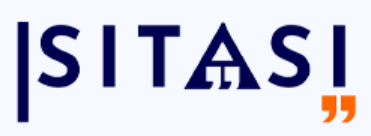GLOBAL HUMAN RESOURCE MANAGEMENT STRATEGY IN FACING MULTICULTURAL CHALLENGES IN THE DIGITAL ERA
DOI:
https://doi.org/10.53067/ije3.v4i2.297Keywords:
Human Resource Management, Multiculturalism, Digital Technology, Globalization, InclusionAbstract
This study aims to investigate global human resource management (HRM) strategies for addressing multicultural challenges in the digital era. The primary focus is how multinational corporations manage cultural diversity by leveraging digital technologies. To gather information from multinational corporations in Southeast Asia the research utilized a qualitative methodology that included semi-structured interviews, document analysis, and focus group discussions. The findings indicate that incorporating digital technologies, including performance management systems and cross-cultural communication tools, markedly enhances the efficacy of HRM by promoting collaboration and transparency. These technologies also enable cross-cultural training tailored to employees' cultural backgrounds, closing cultural gaps and increasing inclusivity. Policies supporting technology use in HRM include fair training and evaluation guidelines. The findings of this study offer new viewpoints on how technology-based and adaptable human resource management strategies can assist multinational corporations in addressing multicultural challenges in the digital era
Downloads
References
Ang, S., Van Dyne, L., & Koh, C. (2022). Cultural intelligence: A review and future directions. International Journal of Human Resource Management, 33(1), 56-84. https://doi.org/10.1016/j.ijhrm.2022.01.002
Beugelsdijk, S., Kostova, T., & Roth, K. (2021). Organizational cultural intelligence: A new perspective for understanding differences in multinational enterprises. Journal of International Business Studies, 52(6), 1002-1020. https://doi.org/10.1057/s41267-020-00393-9
Bowen, G. A. (2009). "Document Analysis as a Qualitative Research Method." Qualitative Research Journal, 9(2), 27–40. DOI: 10.3316/QRJ0902027
Braun, V., & Clarke, V. (2006). "Using Thematic Analysis in Psychology." Qualitative Research in Psychology, 3(2), 77–101. DOI: 10.1191/1478088706qp063oa
Cascio, W. F., & Boudreau, J. W. (2021). Global talent management: What we know and what we need to know. Journal of World Business, 56(3), 100-120. https://doi.org/10.1002/hrm.22030
Creswell, J. W. (2014). Research Design: Qualitative, Quantitative, and Mixed Methods Approaches (4th ed.). Sage Publications, Thousand Oaks, CA.
Krueger, R. A., & Casey, M. A. (2015). Focus Groups: A Practical Guide for Applied Research (5th ed.). Sage Publications, Thousand Oaks, CA.
Kvale, S., & Brinkmann, S. (2015). InterViews: Learning the Craft of Qualitative Research Interviewing (3rd ed.). Sage Publications, Los Angeles.
Marler, J. H., & Fisher, S. L. (2021). Digital HRM: A co
Comprehensive review and future directions. Human Resource Management Review, 31(2), 200-220. https://doi.org/10.1016/j.hrmr.2021.100758
Ng, E. S., Basit, A. A., & Cheung, F. M. (2021). Managing multiculturalism in multinational corporations: A study of cultural intelligence and team performance. International Journal of Human Resource Management, 32(8), 1600-1618. https://doi.org/10.1080/09585192.2019.1674354
Patton, M. Q. (2015). Qualitative Research & Evaluation Methods: Integrating Theory and Practice (4th ed.). Sage Publications, Thousand Oaks, CA.
Saldana, J. (2015). The Coding Manual for Qualitative Researchers (3rd ed.). Sage Publications, Los Angeles.
Stahl, G. K., Tung, R. L., Kostova, T., & Zellmer-Bruhn, M. (2020). Widening the lens: Rethinking cultural diversity in global management. Journal of International Business Studies, 51, 521-538. https://doi.org/10.1057/s41267-019-00259-0
Stahl, G. K., Maznevski, M. L., Voigt, A., & Jonsen, K. (2020). Unraveling the effects of cultural diversity in teams: A meta-analysis of research on multicultural work groups. Journal of International Business Studies, 51(4), 540-558. https://doi.org/10.1057/s41267-019-00259-0
Tarique, I., & Schuler, R. S. (2018). Global talent management: Literature review, integrative framework, and suggestions for further research. Journal of World Business, 53(1), 64-79. https://doi.org/10.1016/j.jwb.2017.09.001
Thite, M. (2022). Digital human resource management: Technology, innovation, and employee-centric digital HRM systems. Human Resource Management Review, 32(2), 100835. https://doi.org/10.1016/j.hrmr.2021.100835
Yin, R. K. (2018). Case Study Research and Applications: Design and Methods (6th ed.). Sage Publications, Los Angeles
Downloads
Published
How to Cite
Issue
Section
License
Copyright (c) 2024 Khaeruman, Irma Nurmala Dewi, Noorsidi Aizuddin Mat Noor

This work is licensed under a Creative Commons Attribution-NonCommercial-ShareAlike 4.0 International License.
Copyright @2021. This is an open-access article distributed under the terms of the Creative Commons Attribution-NonCommercial-ShareAlike 4.0 International License (http://creativecommons.org/licenses/by-nc-sa/4.0/) which permits unrestricted non-commercial used, distribution and reproduction in any medium
















